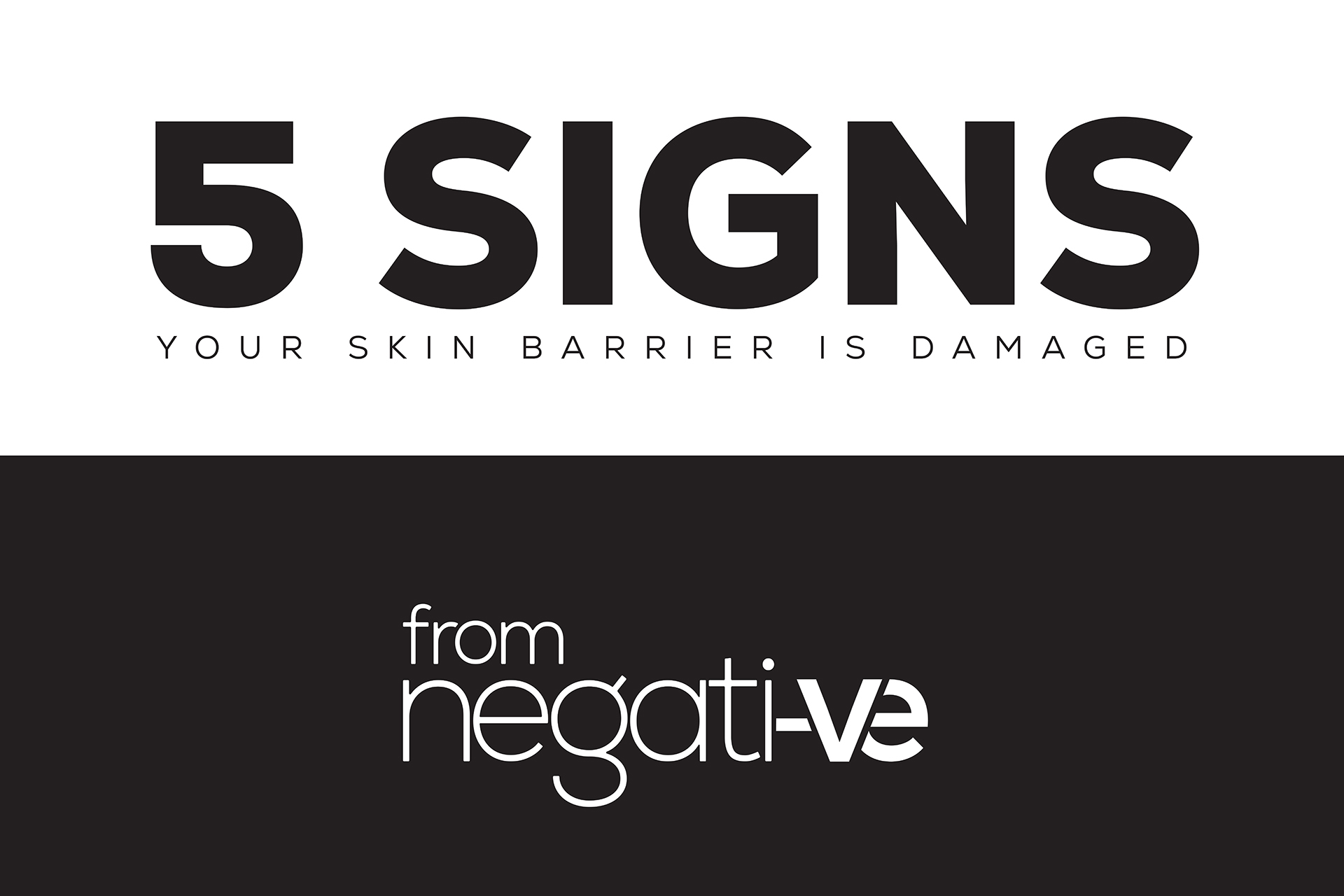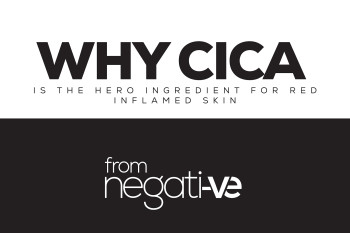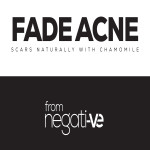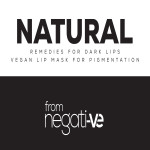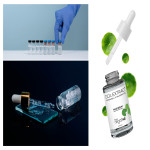Your Skin’s Barrier: The Real MVP of a Healthy Glow
You’ve followed every skincare step. Yet your skin is
suddenly reactive, red, dry in patches — and weirdly oily in others?
You might be dealing with a damaged skin barrier —
the most overlooked (yet crucial) part of healthy skin.
At From Negative, we believe healing starts with
the barrier, especially for sensitive and acne-prone skin. In this post,
we’ll help you identify the warning signs — and gently guide you through
barrier repair using our CICA Toner and expert-formulated tips.
What Is the Skin Barrier — and Why It Matters
Your skin barrier is the outermost layer of your skin
(stratum corneum). It’s made up of lipids, cells, and natural moisturizers
— think of it like a protective wall that keeps hydration in and irritants
out.
When this wall is strong: ✅ Your skin glows, stays calm,
and fights breakouts.
When it’s compromised: ❌ You
face irritation, dullness, sensitivity, and stubborn acne.
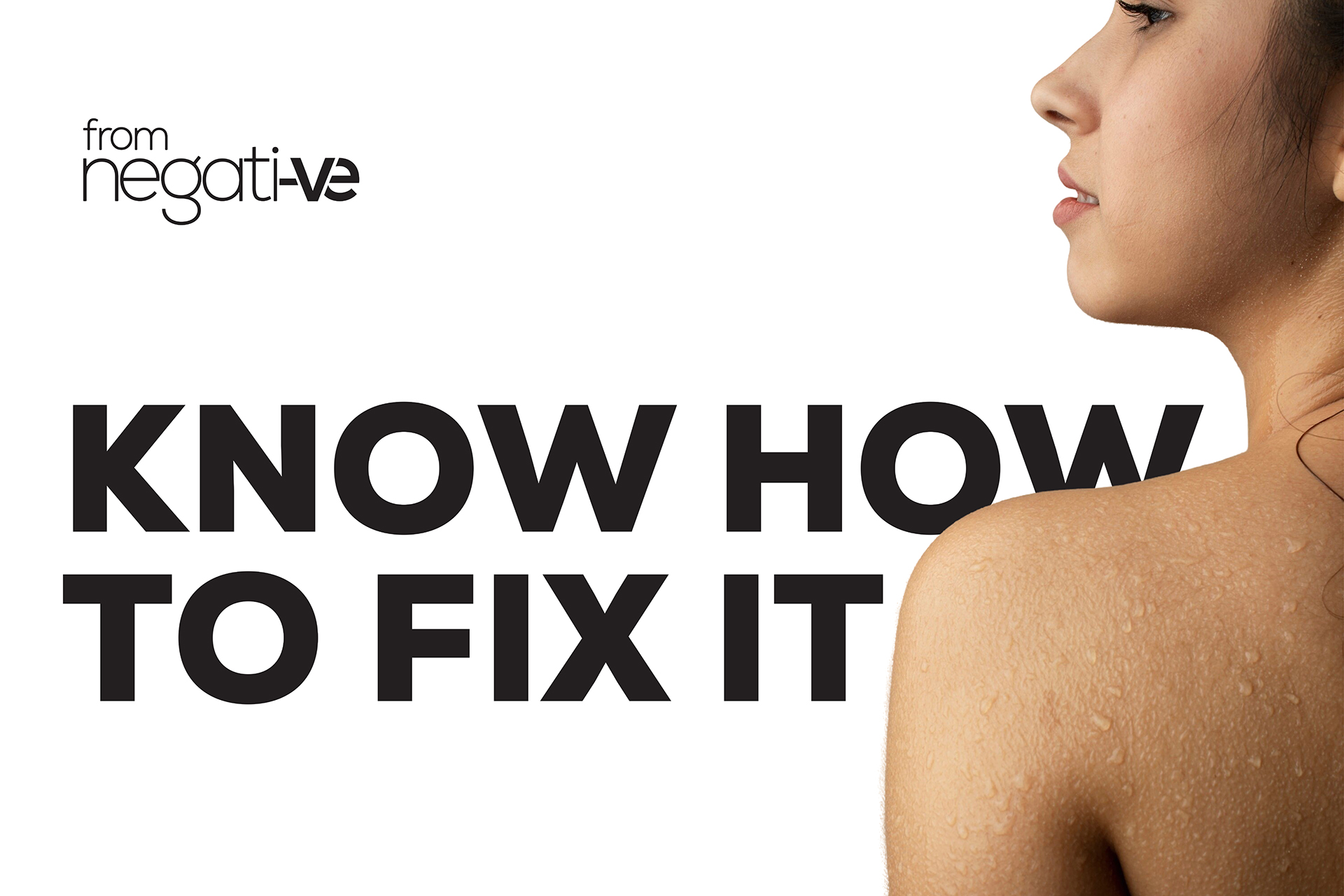
🔍 5 Warning Signs Your Skin Barrier Is Damaged
1. Stinging or Burning After Applying Products
If your skin burns when you apply your usual toner or serum
— even water-based ones — your barrier may be compromised.
Why It Happens:
The protective lipid layer is thin or broken, exposing nerve endings to
irritation.
What To Do:
- Stop
all exfoliants, retinol, and acids for 1–2 weeks
- Switch
to non-reactive, pH-balanced products like CICA Toner
- Introduce
barrier-repairing ingredients like panthenol and centella
CICA Toner Solution:
- Soothes
burning instantly
- Balances
your skin’s pH
- Preps
skin without triggering flare-ups
Shop CICA Toner
2. Sudden Flakiness or Rough Texture
Your skin feels tight, flaky, or sandpaper-like despite
moisturizing? That’s a classic red flag.
Why It Happens:
Barrier damage = trans-epidermal water loss (TEWL), which dries out even oily
skin types.
What To Do:
- Avoid
foaming cleansers and hot water
- Pat in
hydrating toners with hyaluronic acid + CICA
- Layer
moisture with ceramide creams
CICA Toner Solution:
- Hydrates
with humectants like glycerin
- Calms
inflammation with centella extract
- Improves
skin texture over time
Use daily post-cleansing for smoother, plumper skin.
3. Increased Sensitivity to Sun, Heat, or Cold
If sunlight or even wind makes your skin red and irritated,
your barrier isn’t doing its job.
Why It Happens:
The barrier usually shields your nerve endings. When it’s thin, even mild
temperature changes trigger stress.
What To Do:
- Apply
sunscreen every single day — even indoors
- Use
toners that reduce inflammation and rebuild skin strength
- Incorporate
calming, alcohol-free products only
CICA Toner Solution:
- Non-alcoholic
and fragrance-free
- Fortifies
skin to handle environmental triggers
- Best
applied before sunscreen for added comfort
4. Breakouts You Can’t Explain
You’re breaking out in places you usually don’t — and no new
products or hormones are to blame?
Why It Happens:
When the barrier is weak, acne bacteria enter easily. Also, the skin produces
more oil to “protect” itself — clogging pores further.
What To Do:
- Replace
stripping actives with barrier-first care
- Use
CICA + Niacinamide-based serums that calm breakouts and restore
skin
- Avoid
exfoliation until skin feels calm again
CICA Toner + CICA
Serum Combo:
- Toner
reduces inflammation
- Serum
fights acne bacteria with Zinc PCA
- Both
together balance oil production and calm skin
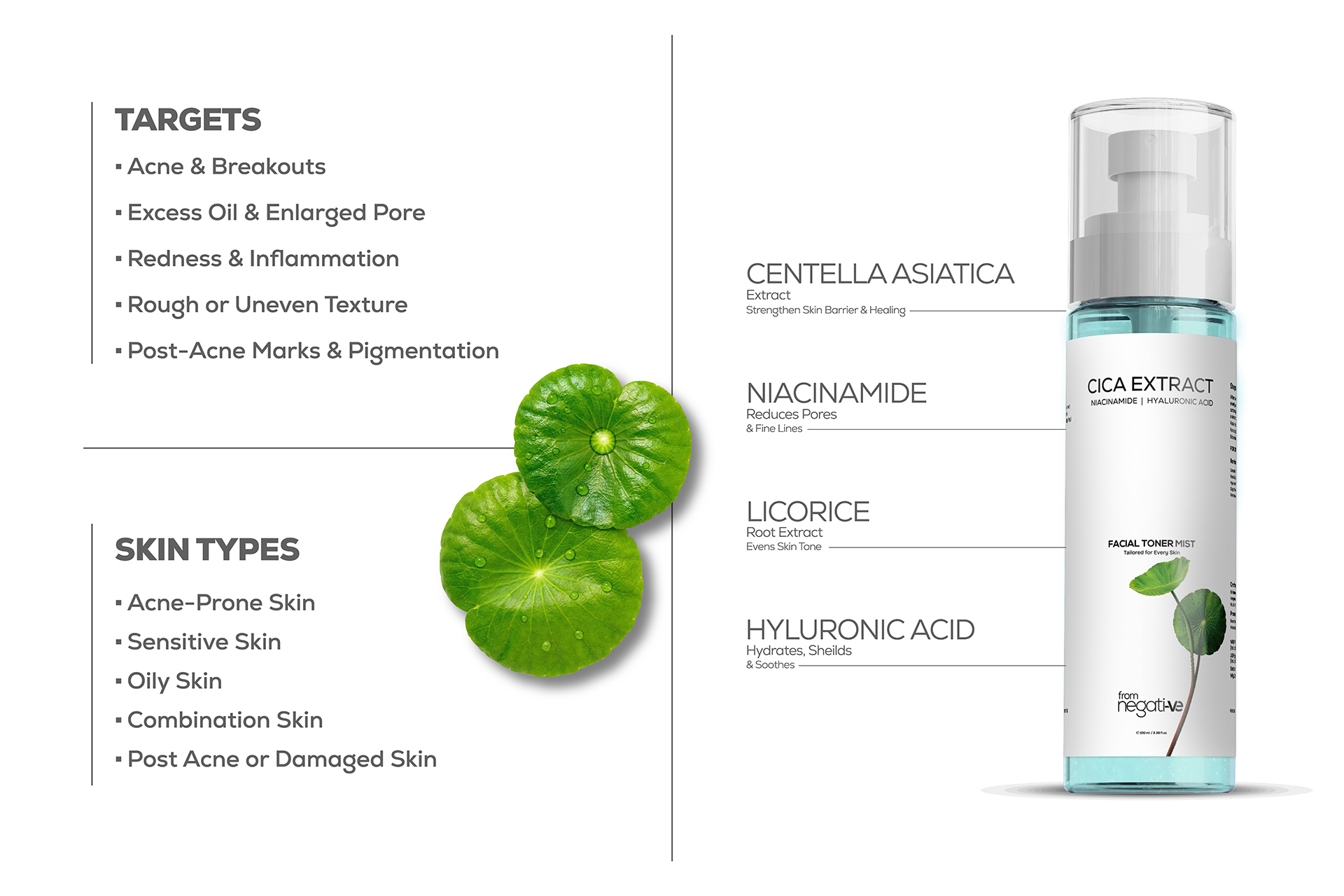
5. Redness and Itchy Patches That Won’t Go Away
Constant redness around the nose, cheeks, or chin —
especially if itchy — may point to barrier-linked eczema or perioral
dermatitis.
Why It Happens:
A weak barrier allows allergens and irritants to penetrate easily.
What To Do:
- Avoid
strong fragrances, essential oils, and foaming face washes
- Soothe
with CICA, Panthenol, and Chamomile
- Use
minimal skincare: cleanser → toner → calming serum → SPF/moisturizer
CICA Toner Solution:
- Neutralizes
redness fast
- Reduces
skin reactivity
- Safe
for long-term daily use, even on eczema-prone skin
How to Fix a Damaged Barrier — Step-by-Step Routine
You don’t need 10 steps — you need 3–4 intentional ones.
Morning Routine
- Gentle
Cleanser (non-foaming)
- CICA
Toner (apply with hands, not cotton)
- Hydrating
Serum or Moisturizer
- Broad-Spectrum
SPF
Evening Routine
- Cleanser
- CICA
Toner
- Chamomile
Serum (if redness is present)
- Moisturizer
with ceramides or squalane
Optional: Use CICA
Serum 3x a week on breakout areas
Barrier-Repairing Ingredients to Look For (and Avoid)
Best Ingredients for Repair:
- Centella
Asiatica (CICA) – calms inflammation
- Panthenol
(B5) – deeply hydrates and heals
- Glycerin
& Hyaluronic Acid – draws water to the skin
- Niacinamide
– strengthens barrier + reduces redness
All found in: CICA
Toner
🚫 Avoid These While
Healing:
- Alcohol-based
toners
- Essential
oils & citrus extracts
- Physical
scrubs
- Exfoliating
acids (AHAs/BHAs)
- Retinoids
(pause for 2 weeks)
Real Skin Stories
“I was using a trending glycolic toner and my cheeks were
peeling. Switched to CICA Toner and Chamomile Serum — my barrier healed in 10
days.”
— Megha, Chennai
“The stinging I felt after cleansing is gone. CICA Toner is
the only toner that doesn’t trigger my rosacea-prone skin.”
— Aditya, Pune
“After years of fighting acne with harsh products, this was
my wake-up call. Barrier repair changed everything.”
— Ira, Delhi
FAQ: Barrier Repair Edition
❓ How long does barrier repair
take?
Typically 2–4 weeks with the right routine. Severe damage
may take 6+ weeks.
❓ Can I still exfoliate while
repairing?
It’s best to pause for 2–3 weeks. Then reintroduce once or
twice weekly — only if needed.
❓ Is CICA Toner suitable for all
skin types?
Yes. It’s especially great for sensitive, acne-prone, and
rosacea-prone skin.
Summary: A Strong Barrier = Calm, Clear, Happy Skin
If your skin is:
- Always
red or itchy
- Stinging
with products
- Breaking
out unpredictably
- Dry
yet oily (yes, it’s possible)
…then your barrier is calling out for help.
The answer isn’t more actives — it’s intentional skincare
that rebuilds your barrier gently.
Your Skin Barrier Routine Starts Here
Shop CICA Toner – Barrier
Repair Begins Here
Pair with Chamomile Serum for Redness
Follow @from_negative for Real Skin Education
